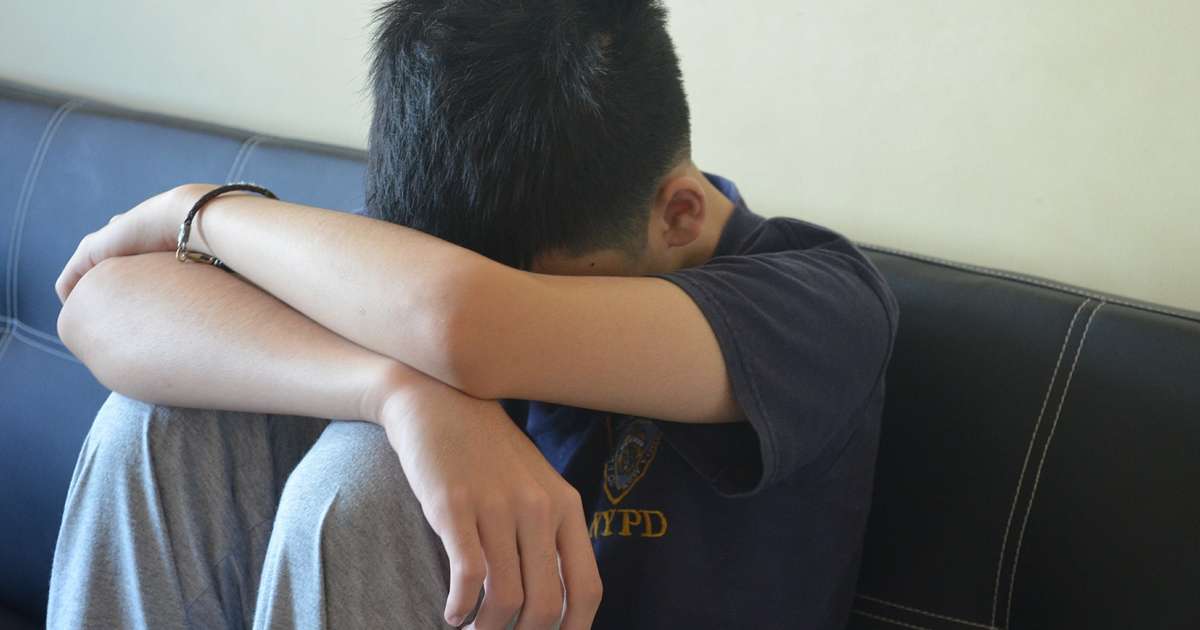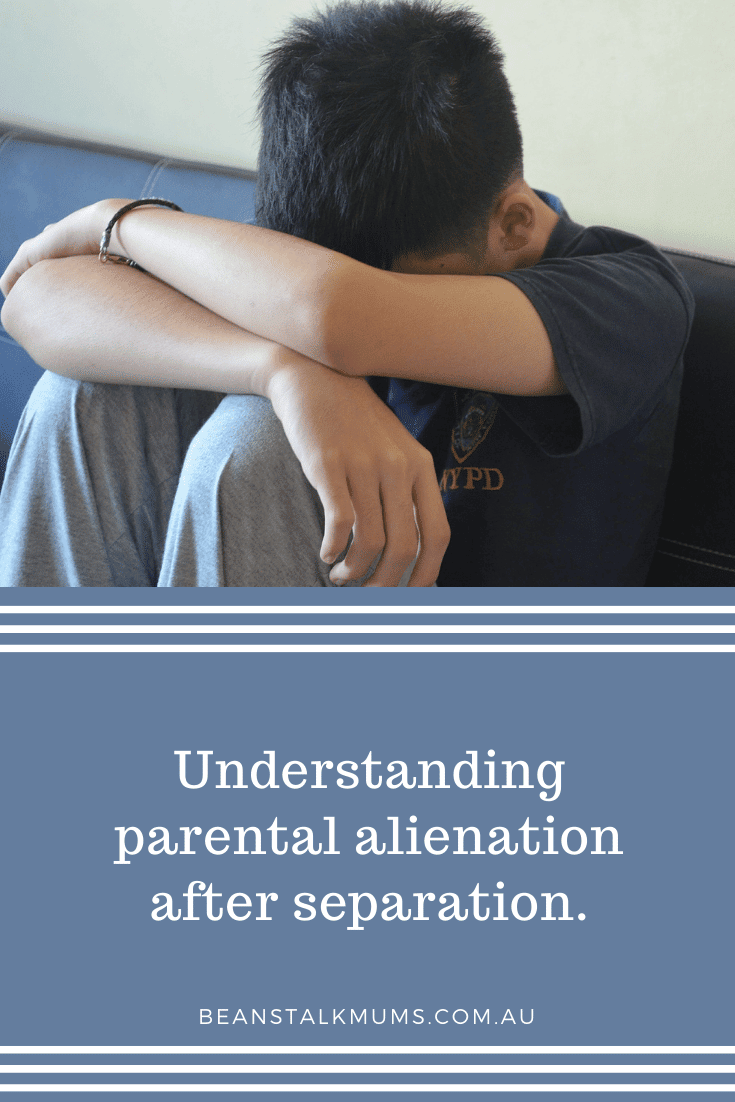
Parental alienation (PA) can occur after a high conflict separation or start during a relationship. That’s what happened to me. It was subtle, like a slow-drip feed. At the time I didn’t know about parental alienation, I didn’t ever think anything like this was possible. Unfortunately it is.
It is so harmful that Italy and Brazil have legislated PA as child abuse and a criminal offence. Advocacy groups in other countries, including Australia, seek legislative changes and awareness.
WHAT IS PARENTAL ALIENATION?
Dr Richard Gardner, PhD, explains that:
“Parental alienation is a set of strategies that a parent uses to foster a child’s rejection of the other parent. Parental alienation syndrome develops in children who come to hate, fear, and reject the targeted parent as someone unworthy of having a relationship with them.”
What does that mean in real life?
I had been separated from my former nearly ten years when I learnt about PA. I was shocked that although I had taken my children to counselling, no-one had told me about PA and no-one helped me or my children to combat the abuse.
I am one of millions of families worldwide who have lost all contact with their children for no tangible reason. I didn’t have the support or awareness to do things differently for myself and my children, but I am determined to help as many children not to suffer the same fate as mine.
Three Main Types of Parental Alienation
My research found three types of alienators. An alienator can be a mother, father, step-parent, grandparent, or extended family member. Alienation is usually between parents with extended family support, and there is no gender bias with PA.
1. The Naïve Alienator
“You know I can’t afford those football boots because your father has all the money now!”
This parent is not meaning to alienate. They want their child to have a relationship with the other parent, but they will occasionally do or say something that can unintentionally cause friction because they are sad or frustrated with their circumstance. Naïve alienators sometimes slip up but genuinely want what is best for their children. They are willing to compromise for the sake of the children.
2. The Active Alienator
“Don’t tell your mother I earned this extra money. She will want more money from me and that will keep us from having fun and going on holidays. You know she’s done this before.”
This parent also knows better than to alienate, but their intense hurt, lasting frustration, anger, or resentment against the other parent causes them to impulsively lose control over their behaviour and what they say. This can result in outbursts or lashing out in front of their child, which is bad for the child’s mental health and teaching them to keep secrets. Sometimes, they passively seek retribution by being incredibly inflexible with custody arrangements. Later, they may feel guilty about how they behaved and try to fix it.
My former partner started off as a naïve alienator. They slowly became an active alienator whilst we were still together, mostly because they were resentful and jealous, saying it was unfair that my parents were alive and their parents were not. I was coping better with the children, I was able to calm them more easily, and they wanted me to play with them. My former tried to fix their behaviour with loads of love bombing, which gave me a false sense of trust. In hindsight when we first separated they fluctuated between being an active alienator and glimpses of an obsessed alienator. After six years of separation they escalated into full-blown obsessed alienator. My then fourteen-year-old son was the first victim of the cult-like brainwashing tactics.
3. The Obsessed Alienator
“I love my kids. No one looks after my kids but me; they are not safe with anyone else. The children don’t want to go to their father’s house. If they don’t want to go there, I’m not going to force them.”
The obsessed alienator has a mission: to align the children to their side completely, and destroy the relationship with the targeted parent. To this end, the obsessed alienator enmeshes the children’s personalities and beliefs into their own. This process takes time and the children are completely helpless to see and combat it.
In my case, my former partner had an affair. I suggested counselling for the sake of our 13 year marriage and our children, but they were not willing to stop seeing the other person. They wanted me to give them time to work who they loved more. So I ended the marriage.
The obsessed alienator is angry, bitter, or feels betrayed by the targeted parent. PA specialists agree that alienator’s feelings become more intense because of shared parenthood forcing them to continue a relationship with a person they despise. Just seeing or talking to the targeted parent triggers their hate.
Alienators are often narcissists, they feel a great need to be in control, they may suffer from personality disorders, or they are emotionally immature. For more support in this area see: Co-parenting with a narcissist ex. co-parenting with a narcissist.
The obsessed alienator goes to great lengths to discredit the targeted parent, including fabricate lies.
My former told people that I didn’t know very well or not at all (like school parents, new neighbours etc…) that I drank too much whiskey and had a temper. This was laughable to anyone who knew me/us because I am a pacifist and always the designated driver. They also complained about being financially disadvantaged, when in fact they got the majority of the assets and I paid them child support.
Characteristics of obsessed alienators:
- Obsessed with destroying the children’s relationship with the targeted parent.
- Over-sharing adult concepts with the child: separation details (their version), intimate relationships, their feelings about the targeted parent.
- Ignoring/breaching court orders; doing as they please.
- Infringing on the targeted parent’s time by making excessive phone calls or activities.
- Setting up tempting alternatives when the child is with the targeted parent.
- Giving the child decision-making power about spending time with the targeted parent.
- Allowing/encouraging the child to talk negatively/disrespectfully about the targeted parent.
- Acting hurt and betrayed if the child shows positive feelings towards the targeted parent.
- Asking the child to lie to the targeted parent.
- Delusional and irrational behaviour to support their mission.
- Claiming they are the victim and keeping the children from the targeted parent is justified.
- Seeking support from relatives, friends or groups to support their victim story.
- Desiring court orders that interfere with the targeted parent seeing the children, confirming in their mind that they are right.
- The obsessed alienator will probably not want to read what is on these pages because the content just makes them angrier
THE RED FLAGS
Early warning signs of parental alienation might include:
CHILDREN MAKING EXCLUSIONARY REQUESTS (DON’T COME TO MY SOCCER GAMES)
Out of the blue my son told me he didn’t want me to watch him play basketball and that I should respect his wishes. He couldn’t give me a reason and just repeated the sentence on loop and getting upset.
OPPOSITIONAL BEHAVIOUR IN A CHILD THAT PREVIOUSLY DEMONSTRATED NONE OR MINIMAL
My boys were happy and joyful, we worked as a team. We always ate dinner together sharing our best and funniest for the day. Then my older boy around 14 acted like a switch had been turned on and started being disrespectful and saying things like, “You can’t tell me what to do”, “Real mums don’t make their kids vacuum”, “No, I don’t want to and you can’t make me” etc..It was like a personality transplant. My younger son and I were in shock.
REQUESTS MADE BY THE CHILD TO NOT ATTEND PARENT/TEACHER CONFERENCES
My older boy told me I didn’t need to go because they had already made a time and it would be weird for me to go but if I want to go I would have to go myself because he wasn’t coming.
SHUT OUT FROM SCHOOL MEETINGS
By the alienating parent via subtle and not so subtle methods) and no longer listed as contact parent for school/camp
This has just happened this year and I had to contact the school and give them a copy of the shared custody orders.
BEING CHALLENGED BY YOUR CHILD
They become argumentative and combative and, in the extreme form, exhibit provocations to the point of explosive rage reactions back to your child
THE CHILD CANNOT TELL YOU THE REASONS FOR THEIR FEELINGS OR REJECTING THE TARGETED PARENT
Both my boys through tears could not tell me why they didn’t want to live with me anymore. They just repeated on loop, “I don’t know, it’s for my mental health”.
A SENSE OF ENTITLEMENT
For example, to receive parental tasks/gifts yet arrogance of how they are better than this parent.
I was told by my son, that if I insisted of forcing presents onto them that I should leave them under the carport.
THE CHILD SEEMS TO NOT BE ABLE TO RECALL ANY PRIOR POSITIVE BONDING EXPERIENCES
My older boy at 14 insisted that I had never been to any of his football games, even though I took him on every second weekend.
The child takes responsibility for the alienation and rejection
They say it was their idea.
When confronted they don’t acknowledge manipulation by the alienating parent.
Both my boys have told me that this is their decision, that it has nothing to do with their other parent, even though I never asked or said it did.
How do you fight parental alienation?
10 Ways to Fight Back Against Parental Alienation
If you are unfortunate enough to become a targeted parent you firstly need to remember that although you are experiencing PA, your child is the victim of parental alienation syndrome PAS. The horrible vile things they say and do to you, it’s not personal, and they are doing what they can to survive. Many PA specialists liken parental alienation syndrome to being part of a cult and being brainwashed. Being a targeted parent is heart wrenching, exhausting and sometimes impossible.
- Don’t blame your child. Always remember they are a victim too.
- Make sure you self-care. You must keep yourself mentally and physically healthy. The alienator will push your buttons so you crack and look like the crazy parent.
- Always maintain your integrity, healthy boundaries, and learn to take it one day at a time.
- Never stop being a great parent, that means to continue to check in with school progress, send birthday cards (even if they are returned)
- Maintain contact with your child. To get the upper hand, an alienating parent may try to limit the access to your child
- Don’t be an alienator. Don’t bad mouth the other parent even if they are wrong. You must take the higher ground.
- Never miss an appointment to see your children. Try to be on time to all appointments and where possible never try to change any arrangements (the alienator will use this against you)
- PA is thought of as a new concept in Australia even though there are over 30 years of case studies from around the world. So make sure that any professionals you hire actually understand the complexities of PA. Get referrals where you can.
- Validate your child’s emotions and don’t try to justify or defend your position.
- Research parental alienation and get help.
How can I prove parental alienation?
- Stick to the facts and keep your emotions out of it. Make sure you keep meticulous records. Where possible use emails; if you do have a conversation keep it about the children and make notes with time and dates. Keep printouts of text messages, emails and record any disruptions to your parenting time.
- Find a credible lawyer and work with a child custody evaluator who specialises in PAS.
- It is possible in some cases to request that the family courtjudge interview your child in private, only if they understand and believe in PA.
It’s important to know that 70% of the grown children who have been alienated from a loving parent and their extended family, as adults suffer from mental health and substance abuse. They often end up becoming a targeted parent themselves and the cycle continues. So this is a community issue and everyone can play a part in protecting our children and creating a better society.














